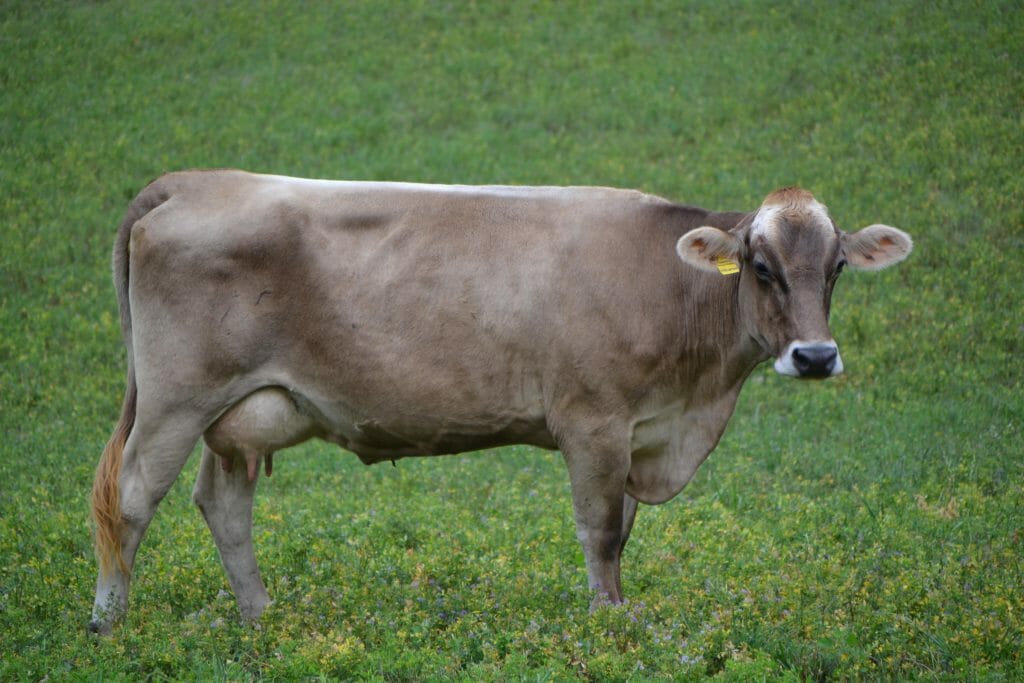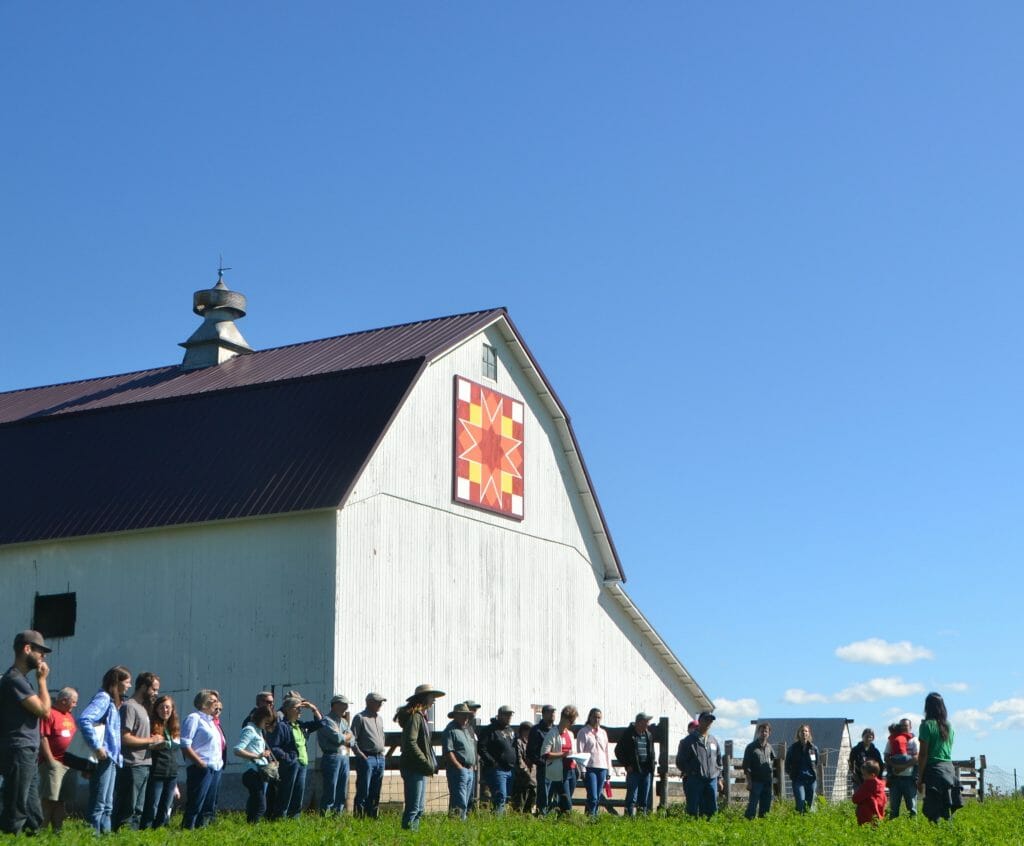Now is the Time to Foster Resilient Farms and Communities

Wendy Johnson with her husband, Johnny Rafkin, and their daughter, Vivienne, on their diversified crop and livestock farm near Charles City.
Just two months ago, few of us could have imagined how profoundly our lives would be altered by a virus, or the speed and scale of changes in store. As COVID-19 continues to upend social norms and routines, devastating lives and psyches and forcing us all to grapple with the uncertainty of what comes next, it’s easy to feel helpless.
But we’re not helpless. This pandemic has also starkly revealed the vulnerability of our food system. In its wake, we’re in a unique position to increase the resiliency of our food and farm systems. As the global networks and supply chains that dominated our nation’s food system falter and crack, now is the time to rethink how we purchase food, to thrive today and into the future.
Farms are small businesses that are not insulated from COVID-19. Across Iowa, these farms are putting in processes to keep employees and customers safe. Their traditional markets, like restaurants and farmers markets, are closing or delayed. Yet many Iowa farmers who sell direct-to-consumer are experiencing increased sales.
These farms are quickly and creatively adapting to provide customers fresh, healthy food in a safe manner. For example, Blue Gate Farm of Chariton, Ebersole Farm of Kellerton and Lost Lake Farm of Jewell are partnering to offer drive-thru pick up of fresh vegetables, meat and cheese at Peace Tree Brewery in Knoxville and Des Moines. Customers are even able to pick up some locally brewed beer to complement their fresh farm fare.
This is only one example of local farmers getting products to their customers – these kinds of innovations are happening across Iowa. Farmers who produce food they sell directly to their customers are used to operating with tenacity and creativity. With fewer links and middlemen in their food chain, they are more nimble and able to adapt how they distribute product.
COVID-19 has exposed the fragility of our elongated, industrial food chain. The more steps along the chain, the more vulnerable the system. Just one obstacle along this segmented route can keep food from getting to the end user. The vast scale of this supply chain makes rapid adjustment hard – and we have seen the effects on supermarket shelves in shortages of staple products like eggs, milk and meat.
The flexibility of local food systems is a huge asset, but there are other benefits. Relationships with food producers foster deeper appreciation and convey renewed satisfaction to the table. Food tastes better when you are aware of how it was raised and the amount of care that went into doing so.
Food sold locally is bursting with flavor and nutrition, while the industrial food system produces for stability in transport, shelf life and efficiency. Local farmers also work hard to steward their land and natural resources, and are vital to the economic health of their local communities.
Money paid directly to farmers stays in the region, creating jobs, services and increased economic activity, rather than being distributed to large, distant companies that don’t promote the vitality of Iowa’s communities. These systems also foster a sense of community, encouraging people to work together and take care of each other.
Purchasing locally is not hard. There are many ways to access local food in Iowa. It might not always be as convenient as a one-stop shop, but the satisfaction and benefits are worth the shift in habits. Convenience need not remain the lead criteria guiding how we feed ourselves and our families. Farmers across Iowa are ready to feed you.
Many resources – from Practical Farmers of Iowa’s local food page to food hubs like Iowa Food Cooperative – exist to help you connect with farmers, even if your local farmers market doesn’t open on time.
We urge you to support a local farmer today, and into the future. You and our state will be healthier and more resilient as a result!



